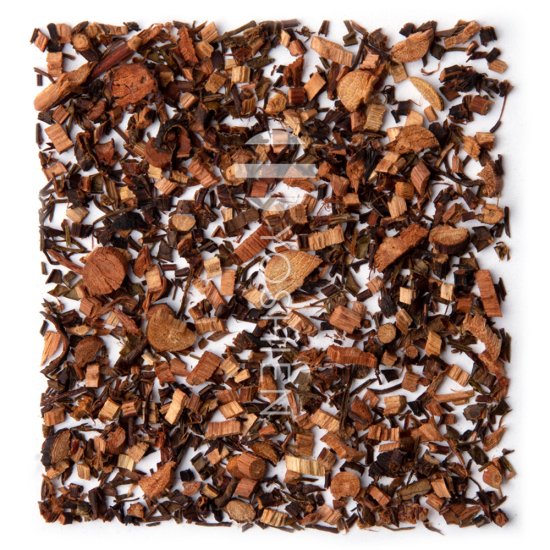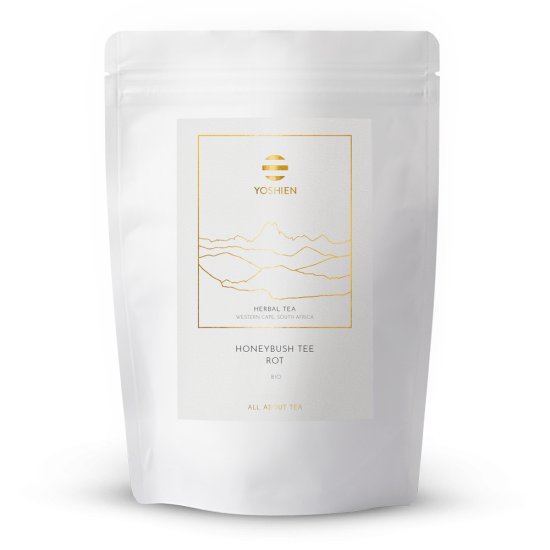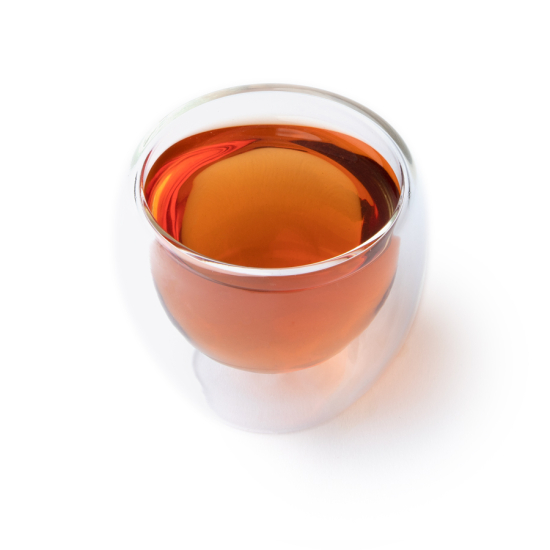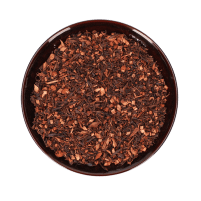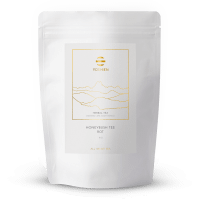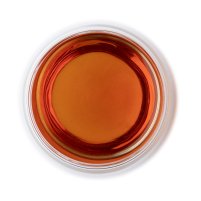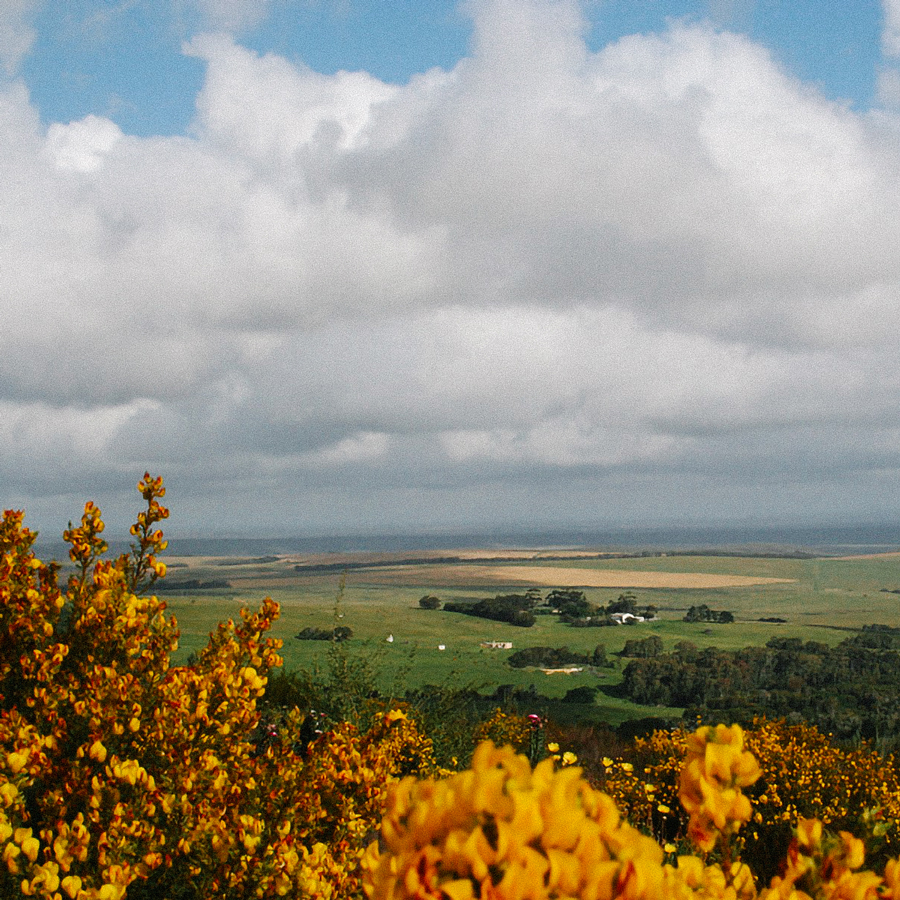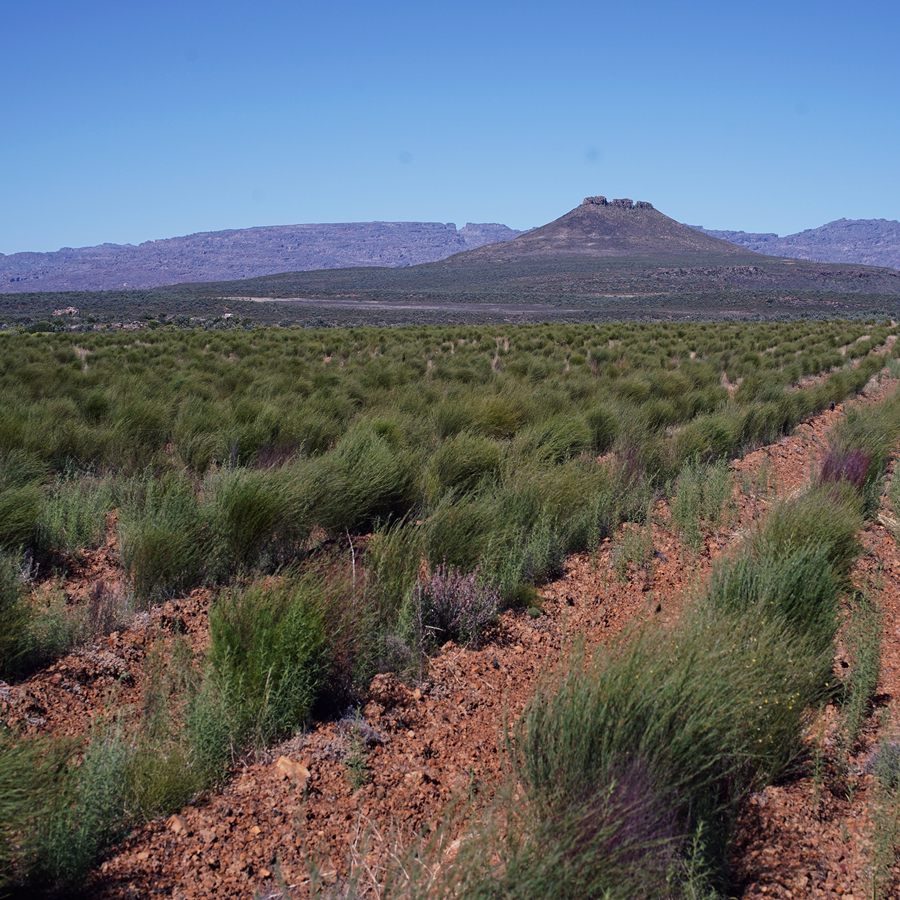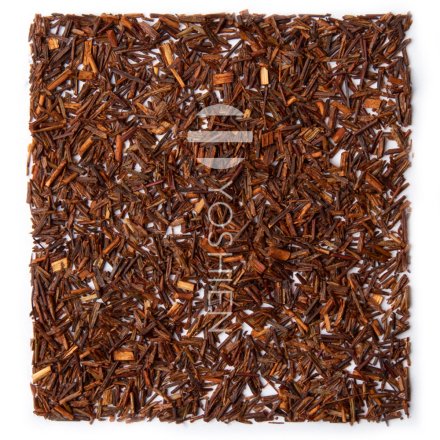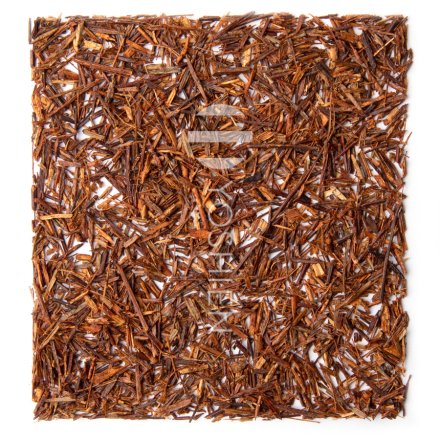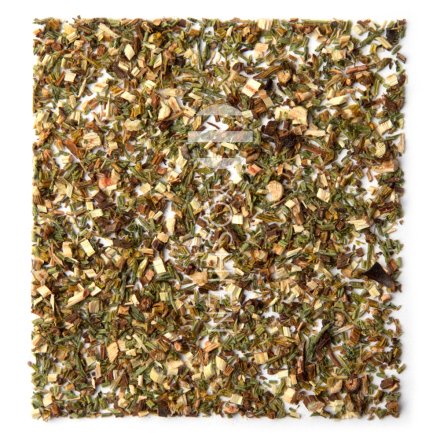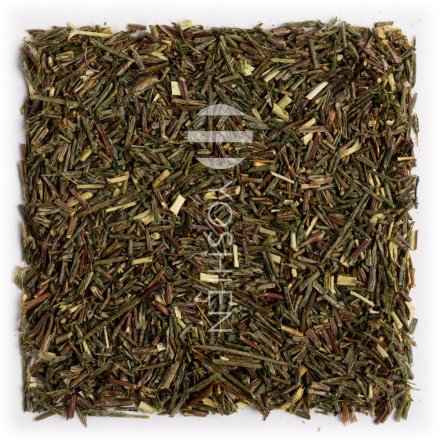The sweet honeybush (heuningbos), like the rooibos, is endemic to the fynbos belt of shrubland in the Western and Eastern Capes of South Africa. When flowering, the honeybush stands out amongst all the other vegetation in the South African countryside thanks to its bright yellow, honey-scented blossoms.
The farm does not use any herbicides, pesticides, or fertilisers, and only pure spring water is used for the fermentation of tea. The honeybush plants are harvested by hand with sickles, which not only improves the quality of the tea, but also does not damage the plants. Special attention is given to the careful weeding of the tea fields during harvest so that no pyrrolizidine alkaloids (PAs, found in other plants) contaminate the honeybush.
Honeybush is processed much like rooibos; it is first oxidised and fermented for 1-3 days, then allowed to dry in the open air for another 2 days until the leaves turn golden brown and a honey-like aroma develops. In the final stage, the honeybush is pasteurised with steam.
Although honeybush previously was harvested from the wild, since the 1990s the plant has been increasingly cultivated for tea on farms in the entire cape region of South Africa.
Single Origin
This tea is exclusively sourced from Cape Agulhas. Sourced directly from the tea farmer.
Organic Certification





